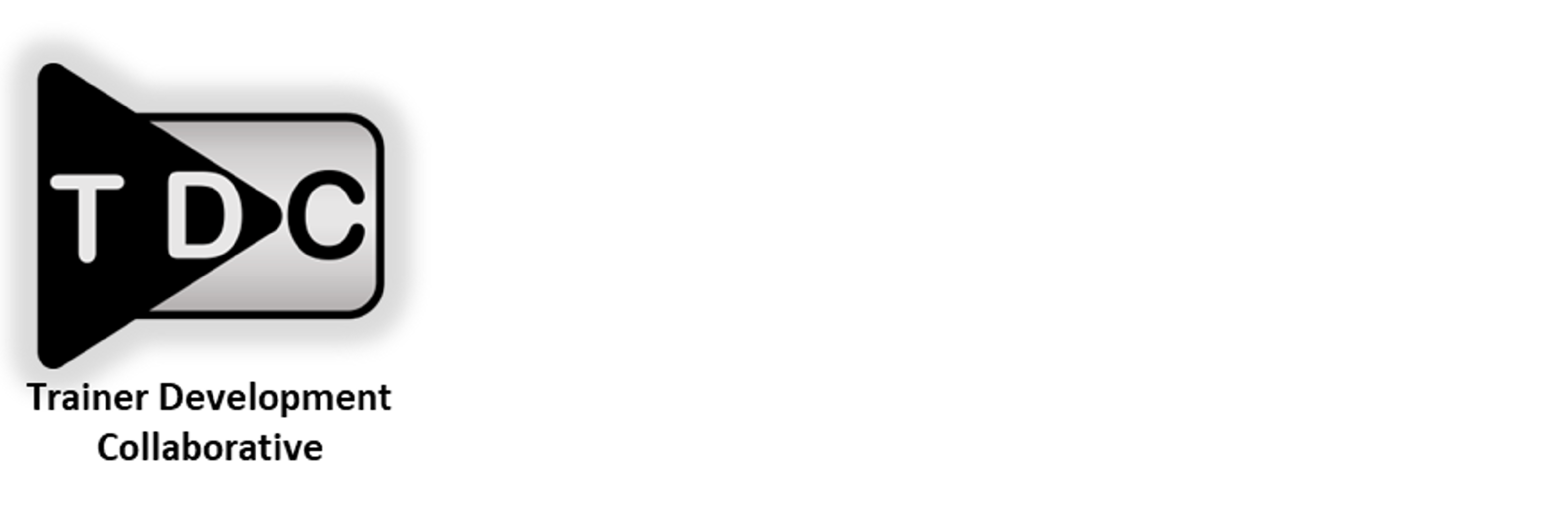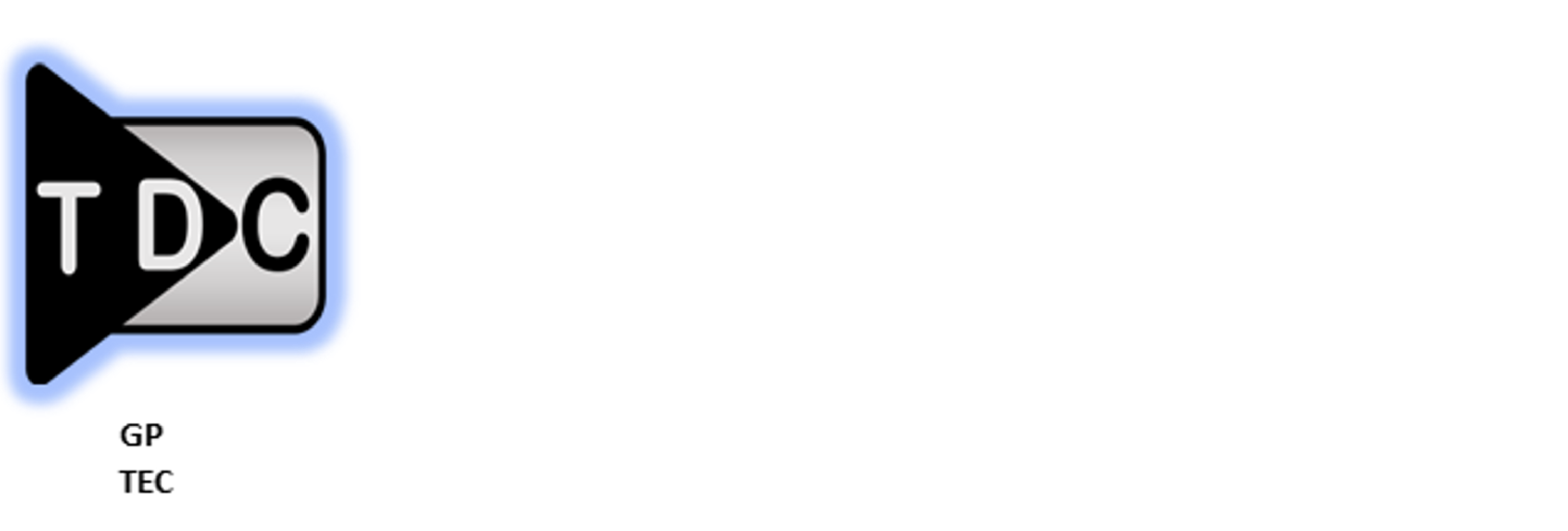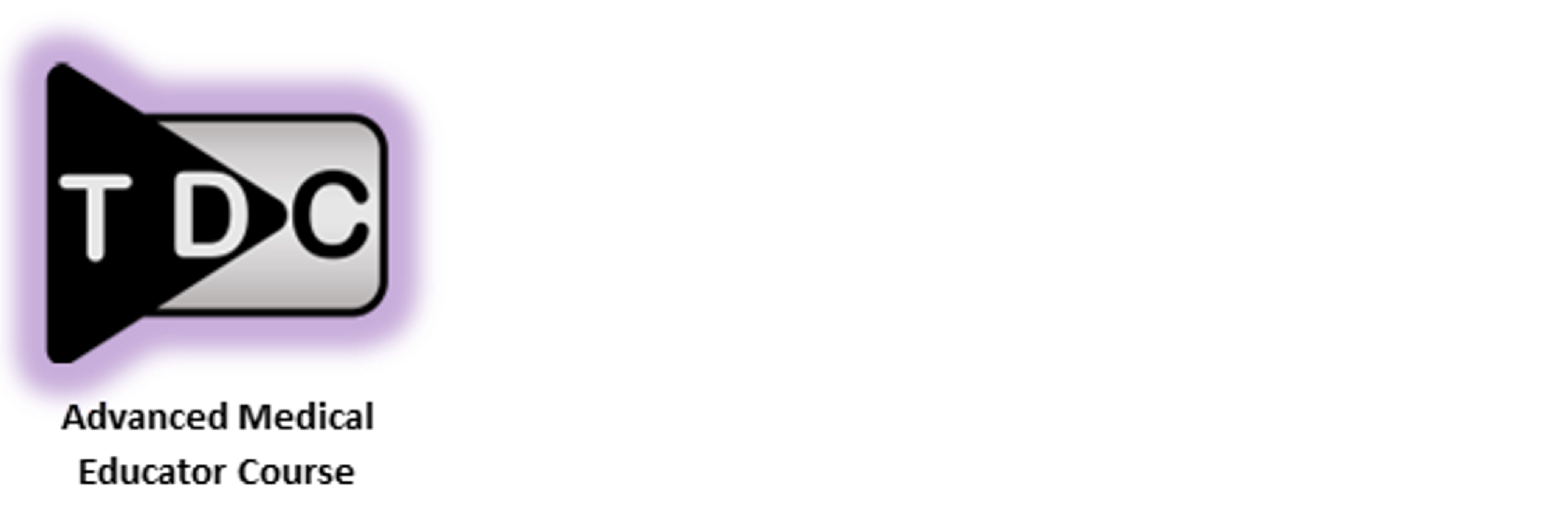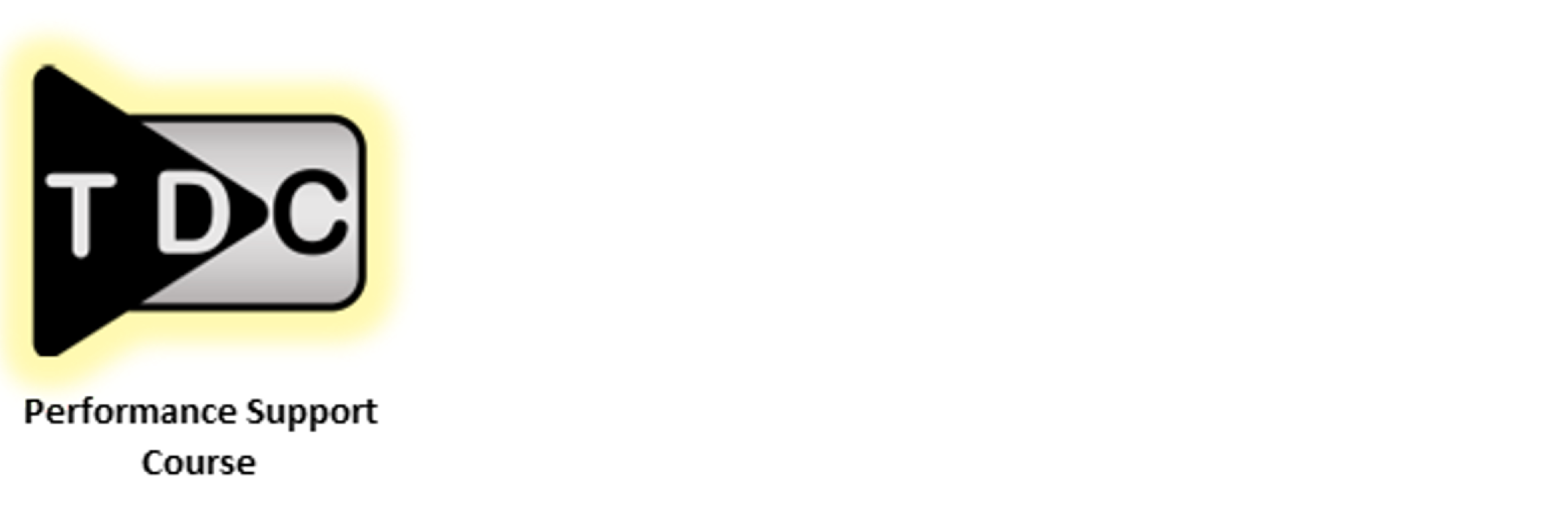Welcome to the Trainer Development Collaborative
Welcome to the Trainer Development Collaborative

I am very excited to be writing this article to introduce you to the Trainer Development Collaborative (TDC). This newsletter is a sneak peak into the TDC which will formally launch on 25th April 2024! We have developed the TDC with the aim of equipping clinicians with the knowledge and skills to deliver high quality medical training, to support and sustain future health and care in Scotland. In the next couple of paragraphs I’d like to explain why the change but also, more importantly, what the TDC will offer you.
The first issue was that the Faculty Development Alliance didn’t seem to be a name that was intuitive. We therefore thought about what it was that was important about what we do and designing a name which reflected that along with clearer aim.
We also heard very strongly that there was a need for the trainer development education to be accessible for colleagues in terms of bookings but also in terms of delivery methods. The courses are of very good quality. One of the things which had changed in the medical education landscape was that learners had become happier with a digital offering and the platforms used. We have therefore been very keen to ensure that the TDC capitalised on this opportunity. Another issue was that some colleagues were unsure of the requirements for recognition of trainers (RoT) and how to get evidence against all of the Academy of Medical Educators (AoME) competency areas.
We have tried to address this in a few ways. We have reviewed the courses which are delivered, and these will continue to be offered and where appropriate on an online basis. There are some courses, which will be delivered face to face around the country, due to the sensitive nature of some of the issues which would be discussed. New courses are being delivered and developed where there are gaps. In addition to these facilitated courses, we are developing electronic modules where these will suit the materials best. An exciting new development is there will be shorter video-based materials which will last around 15-30 minutes on topics of interest which will be more suited to a CPD model. We will map our resources against the AoME competencies which should assist colleagues with the RoT requirements. Having heard that the RoT landscape seemed to be confusing, an educational package is underway to assist with navigating that process.
The ethos of the TDC is very much that resources should be suitable for, and accessible to, all trainers. There are differences though in how General Practice specialist training is managed with trainers being approved in a slightly different way. As a result, there are also some specific courses for General Practitioners, but the other courses are of course suitable for everyone and indeed often enhanced by being attended by primary care colleagues.
All TDC resources will be accessible from TURAS and will include forms which we suggest will assist with your reflections as well as certificates for demonstrating where these resources fit against the relevant competencies. The FDA website and emails will change to reflect these changes.
In short, the TDC has arisen from your feedback. It is to provide a nimble, developing resource so we would encourage suggestions and dialogue – please email, speak to us and share your idea. With these changes and your ongoing engagement, we really will equip clinicians with the knowledge and skills to deliver high quality medical training, to support and sustain future health and care in Scotland.
Dr Daniel M Bennett
Associate Postgraduate Dean

12.1 Trainer Workshop
Trainer Workshop
What is it?
The Trainer Workshop is an entry-level resource which looks at the fundamentals of both Clinical and Educational Supervision roles and fulfils the ‘induction to the educational role’ requirement for a trainer’s initial recognition. It is delivered in two parts - the part 1 is an eLearning module, hosted on Turas Learn, which must be completed prior attending the part 2 online workshop.
Who is it for?
The Trainer Workshop is aimed at those Consultants, Public Health Consultants, GP Foundation Supervisors, SAS-grade doctors, and Dental trainers, who are looking to undertake an educational role and is a prerequisite for all GPs wishing to become Approved GP Trainers within their practice, prior to undertaking the General Practice Trainer Entry Course (GP TEC). There is also a ‘Pre-CCT’ version, to help final year trainees become ‘trainer-ready’ on completion of training.
What does it cover?
Part 1 Online module: This looks at the background, or underpinning information and focuses on the following areas:
Background:
-
- Recognition of Trainer requirements
- The Educational Governance Structure
- The NES Quality Management Framework
Educational Activities:
-
- Departmental / practice induction
- Educational meetings
- On-the-job teaching
- Assessment & feedback
There are tasks to complete from the module, which are used for discussion at the workshop which follows.
Part 2 Online workshop: The workshop includes small group work, video content and general discussion, focusing on the following areas:
-
- The learning environment
- Giving effective feedback
- The Educational Supervisor’s Report
The Trainer Workshop (Part 2) is delivered online by NES (Trainer Development Collaborative) and face to-face by local faculty in the following Heath Board regions:
-
- NHS Highland
- NHS Grampian
- NHS Forth Valley
- NHS Lanarkshire
- NHS Dumfries and Galloway
How do I access it?
Those within the target audience can access the Trainer Workshop via Turas Learn. Once a place has been booked, delegates will receive a link to access the online module.
There is no course fee for the Trainer Workshop.

12.2 GPTEC – General Practice Trainer Entry Course

Who is it for?
The GP Trainers Entry Course (GP TEC) has been specifically developed for those wishing to become Educational Supervisors in General Practice. Completing GP TEC is a mandatory requirement for Scottish GPs who are seeking GMC approval to be a GP Educational Supervisor.
What does it cover?
This popular course is a blended learning experience delivered over a period of 5 weeks. It involves 3 small group sessions, the first two taking place online via Adobe Connect and the third being face-to-face. Participants are expected to complete online modules prior to session 1 and session 2 and prepare a short topic prior to session 3.

Courses run regularly throughout the year. The small groups consist of 6 to 8 people with a facilitator. All the sessions are interactive in a friendly environment. There is no individual role play.
The small group nature of this course allows the participant to identify through discussion, what is needed to maintain a safe learning environment in their own GP Training Practices.
There is also a focus on how the Educational Supervisor develops a trainee centred approach to GP Training. Participants explore how they might alter their own teaching and feedback techniques depending on an individual trainee’s needs. By identifying barriers early and producing timely effective feedback, the need for additional trainee support later in training is reduced.
Other GP TEC content includes updates on GP training in Scotland, differential attainment and current MRCG requirements. The participants also gain practical experience in giving feedback and taking part in RCGP assessments.

"It was a steep learning curve, introduced and reviewed very well, in appropriate sections. Very helpful and very well organised- thank you -Fun too”
– feedback from recent GP TEC course.
How do I access it?
If you are interested in becoming a new GP Educational Supervisor, we would encourage you to speak to your local Training Programme Director. An up-to-date list of all GP Training Programme Directors can be obtained from the Scottish Deanery Website Meet Our Teams | GP Specialty Training | Scotland Deanery (nhs.scot)

12.3 Leadership in the Learning Environment Course

Who is it for?
The LitLE course is a one-day, face-to-face course for Recognised or Approved trainers who want to explore the role leadership can play in delivering effective training.
What does it cover?
The LitLE course starts by taking a high-level overview of the delivery of postgraduate medical education, the roles and responsibilities of organisations and individuals, the delivery of high-quality patient care, and the process of how they link in a meaningful way to deliver effective training.
The course then focusses on how leadership, and particular leadership styles, can influence the delivery of training. We consider how Compassionate, Inclusive and Collective leadership styles can be effectively combined, to create a workplace culture in which people feel welcomed and valued, and can learn, contribute, and thrive.
We explore: the influence workplace culture has on individuals, and the importance of recognising and valuing the benefits of diversity within a team, how to create an inclusive culture and the benefits of trainer’s recognising their privileges and using these to be an ally for their trainees.
The LitLE course is interactive and aims to use the experiences of all participants to identify what is already working well within the learning environment, reflect on why it works well and how we might build on those successes. We also consider some of the challenges trainers face and potential solutions.
Issues which may impact or influence the trainer: trainee relationship are also examined in some detail, and this together with the trainers’ experiences, provides an opportunity for discussion and learning.
The course concludes with a recap of the added value leadership skills bring to the training context and the potential influence trainers can have on workplace culture and the delivery of effective training.
How do I access it?
The Leadership in the Learning Environment Course will be available across the country from April 2024 and places can be booked via the TURAS Learn platform.

12.4 Advanced Medical Educators Course

What is it and who is it for?
This one day interactive face-to-face course for 12 participants provides an opportunity for those who have been an educational supervisor for more than 5 years, to focus on their own development as an educator and to share learning and experiences with the group.
What does it cover?
The day starts with an icebreaker and moves on to look at giving feedback and the various models that might be used to deliver it. Whilst most educational supervisors are used to giving feedback, the use of frameworks can help even the most experienced when faced with giving difficult or negative feedback. The group starts off by practicing this is the safe setting of non-medical teaching and learning, working in trios to give feedback. As the morning progresses the level of challenge is increased with the use of video to illustrate difficult cases and the opportunity to role play different ways of giving that feedback.
A session on role modelling, its effect on workplace culture and the attributes of role models ends the morning.
In the afternoon we aim to equip educational supervisors with more ‘tools in the toolbox’ for supporting trainees but also provide some scope for personal development and reflection. This part of the day focuses on using a novel method to aid reflection by breaking down the reflective process into several parts. A session on the use of written narrative to consider when helping trainees with reflection follows. This is also of value for self-reflection as an educator and allows a brief interlude of calm and quiet pause. We finish the day with a short session on NVC (non-violent communication) or discussion of hot topics in medical education.
There are regular breaks throughout the day and the richness brought by participants and faculty from a range of specialties and geographical areas across Scotland is evident in the informal networking and sharing of experiences that occurs.
The course is mapped to all 7 of the AoME framework areas described in RoT ( Recognition of Trainers) and so useful for appraisal and revalidation.
Claire Alexander March 2024

12.5 Performance Support Course

What is it?
The Performance Support Course is new and replaces the FDA Supporting Trainees with Difficulties Course.
Who is it for?
The Performance Support Course is for Recognised and Approved trainers and supervising clinicians who are Consultants, GPs, SAS doctors or Dentists in non-training grades.
How is it delivered and what does it cover?
The aim of this new course is to: increase trainers’ confidence is recognising when trainees are in need of additional support, raise awareness of the wide range of support available and the importance of transparency and accurate, timely documentation.
This new course is delivered in two parts:
-
- a pre-course online module
- and a one-day face-to-face course
The online module provides background information regarding the structures in place to support both trainees and trainers when issues arise. The module includes details of the newly established Trainee Development and Wellbeing Service (TDWS), what it has to offer, and how trainees and trainers can access these services.
Early warning signs that a trainee may require additional support is also covered in this module and guidance is provided regarding the preparatory work necessary for the face-to-face course.
Building on the Early Warning Signs the course takes a closer look at the potential influences on a trainee’s performance and behaviour, and the importance of gaining the trainee’s perspective to identify any underlying issues which may need to be addressed.
The course also includes the principles and practicalities of providing targeted support for trainees to meet their individual needs.
How do I access it?
The Performance Support Course will be available across the country from April 2024 and places can be booked via the TURAS Learn platform.

12.6 Recognition of Trainers (RoT)
Background
In 2012, the GMC issued guidelines regarding the Recognition of Trainers, to ensure that trainers in the ‘named’ roles not only had sufficient training for their educational role, but also sufficient time in which to perform that role. The Recognition of Trainers in Scotland came into effect in July 2016.
The requirements for Recognition of Trainers in Scotland were developed by the Education Organisers (EOs): NHS Education for Scotland (NES) in partnership with the five Scottish Medical Schools and in conjunction with the territorial Health Boards, via the Directors of Medical Education (DME) group. These are built around the Academy of Medical Educators’ (AoME) Competency Framework, adopted by the GMC for this purpose and adopt a once-for-Scotland approach, so that a trainer is recognised once for all “named” roles requiring recognition by the GMC.
There are currently more than 5,000 recognised trainers in Scotland.
There are separate arrangements for the formal GMC Approval of GP trainers, which differ from recognition.
Who does Recognition apply to?
Trainers requiring to be Recognised include:
-
- All Undergraduate teachers performing one of the ‘named’ roles
Module / Block Leads, NHS Teaching Leads / Sub Deans, Teaching Deans, Year Leads / Directors
-
- All Secondary-care trainers performing one of the ‘named’ roles
Clinical / Educational Supervisors
-
- GP trainers who supervise foundation trainees only and who are not already Approved.
- Non medically qualified trainers performing one of the ‘named’ roles (e.g. Healthcare Science, Public Health)
How does it work?
To gain recognition, trainers must show that they meet the minimum requirements set out by the EOs. This includes having:
-
- completed initial training for their education role
- completed Equality & Diversity training
- sufficient time to carry out their education role
Once recognised, trainers can start to supervise Medical Students / Trainees.
A trainer’s recognised status need to be renewed on a regular basis. For most, this will be triggered by their Clinical Revalidation. For those trainers who are not medically qualified, this will be on a five-yearly cycle.
During this time, trainers should collect a portfolio of evidence which supports their engagement and develop in their education role. This evidence should be mapped to the AoME Competency Framework areas, ideally including examples of:
-
- What they do (timetables, rotas, teaching plans, Measurement of Teaching (MoT) data etc.)
- Why they do it in that particular way (best practice identified from literature, attendance at training, discussions with colleagues, journal clubs, reflective notes etc. on their (educational) practice)
- How well it is done (student or trainee feedback, multi-source feedback, peer observation etc.)
Trainers will then be recommended by their local DME for ongoing recognition and their evidence reviewed (by Medical Schools for those who solely have undergraduate roles, and by NES for all others). If requirements are met, a trainer will remain recognised for the next five-yearly cycle.
Support for Medical Appraisers
NES is responsible for the training and development of medical appraisers in Scotland and recently (5 March 2024) a webinar was run for the appraiser workforce to outline for them their role in the ROT process. A recording of the webinar can be accessed via the Medical Appraisal Scotland website.
More information on RoT can be found on the Scotland Deanery site at Scottish Trainer Framework (STF) | Scotland Deanery (nhs.scot)
Welcome to the Trainer Development Collaborative
